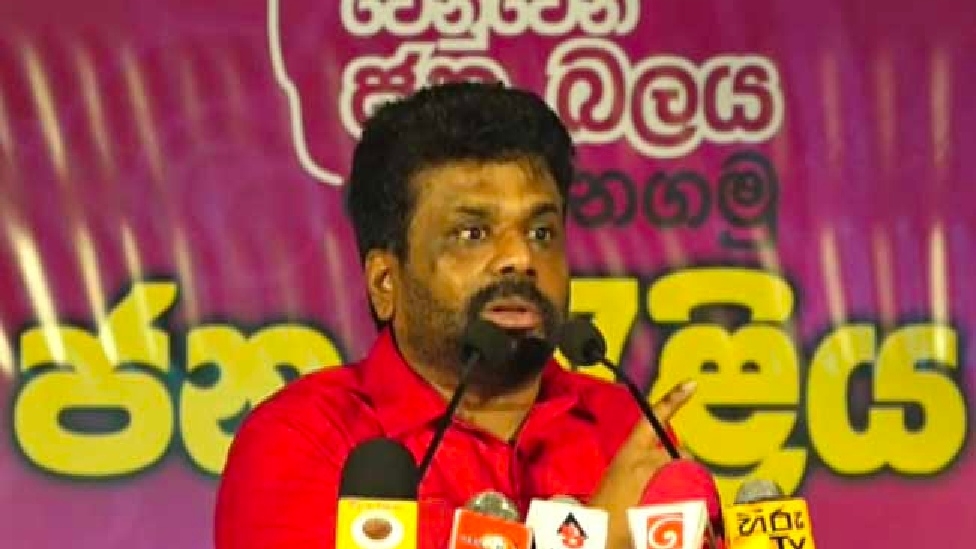Obstructing elections is a punishable offence – Anura warns Treasury Sec.

National People’s Power (NPP) leader MP Anura Kumara Dissanayake has warned Treasury Secretary Mahinda Siriwardena that attempting to obstruct the upcoming Local Government (LG) election is a punishable offence.
Speaking at a rally in Maligawatte yesterday (20 Jan.), Dissanayake noted that the deliberate obstruction of the upcoming election that is due to be held on 09 March, is an offence punishable by three years of imprisonment.
The NPP leader said this in regard to the affidavit submitted to the Supreme Court last evening by Siriwardena, stating that securing additional funds for an election at a time state revenue is battered by the economic crisis is extremely ‘challenging’ to the Treasury.
Accordingly, Dissanayake noted that deferring the election would have been possible if the country’s economy was stable, however, this is not the case, he emphasised.
He further argued that despite claims that there are no funds to hold the election, and that by doing so, it would only worsen the existing fuel and medicine crises, it takes only Rs. 8 billion to hold the election.
“It only takes Rs. 8 billion to hold the election. The recent sugar tax scandal in itself amounted to Rs. 15 million. From this money itself, we can hold two elections. If you brought this country to a state where it is unable to even hold an election, you need to leave”, Dissanayake stated.
He further questioned the Finance Secretary’s authority to refuse giving the necessary funds for the election, when the Parliament itself has decided to allocate money for this purpose.
“The monetary power lies with the Parliament” he said in this regard, adding that if the money is not being given by the Secretary, it will be deemed a deliberate obstruction of the election.
Treasury Secretary Siriwardena yesterday submitted an affidavit to the Supreme Court pertaining to a writ application filed by retired Army Colonel W.M.R. Wijesundara, which, citing the prevailing economic crisis, has sought a court order to defer the local government election.
In his affidavit, Siriwardena pointed out that the country’s export revenues dropped by 8.2% in 2021 due to the Covid-19 outbreak and as a result, the budget deficit increased by 11.6% in that year.
Explaining that the government spends a sum of Rs. 90 billion on state sector salary payments, Rs. 28 billion each for Samurdhi allowances and importing essential items such as medicines and fertilizer, Siriwardana explained that the government is struggling to source funds to fulfill these essential needs of the public.
In addition, the government had to incur a sum of Rs. 114 billion to settle interest payments and Rs. 169 billion for debt payments in the year 2022, Siriwardana added.
He also recalled the decision taken by the government recently to delay the salary payments for executive-grade employees in the state sector by a few days due to the prevailing situation.
Thus, he highlighted that election expenditure will gravely affect the fiscal condition of the country.
Meanwhile, the Election Commission of Sri Lanka today announced that the LG election will be held on 09 March, while the deadline for the application of nominations was closed at 12:00 p.m. this afternoon.
The Regulation of Election Expenditure Bill was also passed in Parliament on Thursday (19 Jan.), with a majority of 61 votes.
The Bill was passed in Parliament with 97 votes in favour, while 36 MPs voted against the Bill.
Several political parties in the opposition including the Samagi Jana Balawegaya (SJB), however, expressed their discontent about scheduling the debate for today, citing the government’s attempts to pass the bill hastily in a bid to postpone the local government election, while various election monitoring organisations too, have raised concerns pertaining to the Bill, deeming the law inadequate.
